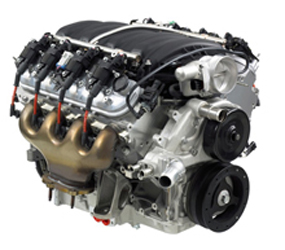P1EEB Engine Trouble Code
Meaning of P1EEB engine trouble code is a kind of powertrain trouble code and when the check engine light comes P1EEB code on the first you should check is the gas cap. Pull over, retighten it, and take a look at the cap to see if it has any cracks in it. Continue driving and see if the check engine light turns off. Alternately, you can purchase a gas cap for about $3 at an auto parts store. All you need to do is take the old one off and screw on the new one. If you've already made it to the store, you might as well just replace it. While not car-threatening, it's good to take care of this right away to improve gas mileage.
P1EEB Fault Symptoms :
|
If one of these reasons for P1EEB code is occuring now you should check P1EEB repair processes.
Now don't ask yourself; What should you do with P1EEB code ? The solution is here : |
P1EEB Possible Solution:

|
Gasoline engines use spark plugs to cause an explosion of fuel within the cylinder. In a properly timed engine, this explosion occurs at the proper moment to send the piston to the bottom of the cylinder and provide power to the drive shaft. If the plug wires are out of sequence, the explosion occurs at the wrong time. The improper timing of the explosion sometimes pushes the cylinder the wrong direction or interferes with the turning of the crank. As a result, the engine stutters or backfires, if it runs at all. |
P1EEB Code Meaning :
| P | 1 | e | e | b |
|---|---|---|---|---|
| OBD-II Diagnostic Powertrain (P) Trouble Code For Engine | Fuel And Air Metering |
The oxygen (02) sensors on your car measure the oxygen in the exhaust to determine how rich or lean the ratio of fuel and air are in the cylinders. Optimizing this mixture means better fuel economy and fewer exhaust emissions.
P1EEB OBD-II Diagnostic Powertrain (P) Trouble Code DescriptionP1EEB engine trouble code is about .Main reason For P1EEB CodeThe reason of P1EEB OBD-II Engine Trouble Code is . |
P1EEB code on vehicles with electronically controlled automatic transmissions, the 3-4 shift solenoid is responsible for actuating the hydraulic circuits to activate clutches or bands that change gears inside the automatic transmission.

